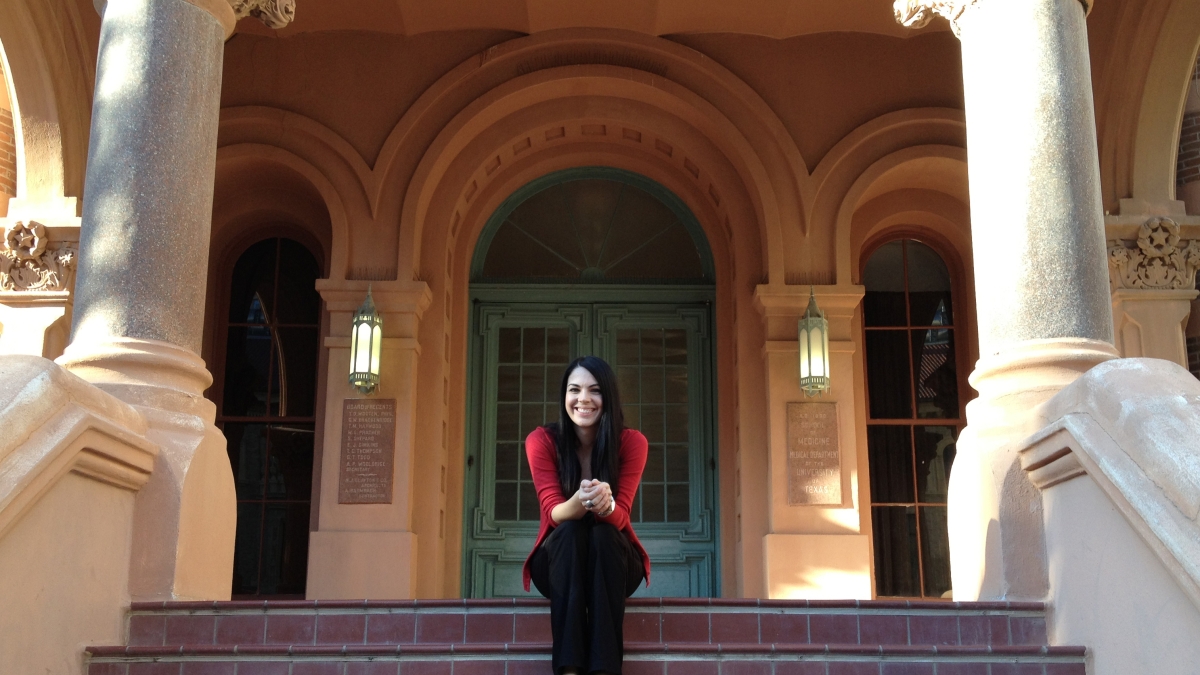New College communication grads thrive in doctoral programs

The fact that Jeffrey Kassing was lead author for the article “Dissent expression as an indicator of work engagement and intention to leave” in the Journal of Business Communication represented more than another publication in a refereed journal for Kassing, professor of communication studies in ASU’s New College of Interdisciplinary Arts and Sciences. A look at the list of coauthors reveals the names of two graduates of the master of arts in communication studies (MACS) program offered through New College, the core college on ASU’s West campus, who are now working toward their doctoral degrees.
Nicki Piemonte is her second year of work toward a doctorate in medical humanities at the University of Texas Medical Branch in Galveston, while Carmen Goman started last fall in pursuit of her doctorate in communication with an emphasis in media and society at Georgia State University in Atlanta.
The study that resulted in the article in the Journal of Business Communication examined how dissent expression relates to employees’ self-reports of work engagement and intention to leave. A sample of full-time employees completed a questionnaire. Findings indicated that dissent expression related to both employees’ work engagement and their intention to leave. In particular, dissent expressed to management and coworkers associated with work engagement, whereas dissent expressed to non-management audiences associated with intention to leave. The researchers conducted additional analysis revealing that for managers, work engagement was primarily a function of refraining from expressing dissent.
Kassing and his student co-authors first gave a report about the study at the convention of the National Communication Association, held in San Francisco in 2010.
“The study shows the potential of dissent to predict employee engagement and turnover,” Kassing said. “More specifically, dissent serves as a beacon indicating whether or not employees will be engaged and likely to stay with a company or disengaged and more likely to leave the company. Overall the results confirm what dissent scholars have long argued, that dissent can have meaningful benefits for organizations and is an important component of employee well-being in the workplace.”
Both Piemonte and Goman said their participation in the study was extremely beneficial to them despite the fact that the subject matter isn’t directly related to the topics they now are pursuing.
“The process had multiple benefits – it helped me become a more seasoned researcher, it demonstrated that I can show flexibility as a student and graduate assistant, and it provided experience at managing the sometimes frustrating process of revising and resubmitting drafts of the article,” said Goman, who also worked with New College professors including Douglas Kelley and Vincent Waldron during her pursuit of the MACS degree.
“Although the work we did with Dr. Kassing may seem only tangentially related to my current interests, it actually has informed some of the work I'm doing now,” Piemonte said. “In fact, one of my professors sent me an article last week that discussed the factors contributing to physicians’ intention to leave academic medical institutions. I think we sometimes forget how much organizational communication studies can contribute to our understanding of the practice of medicine – a practice that is so often caught up in larger organizations and institutions.
“Essentially, the medical humanities take a philosophical, literary, historical, legal, ethical, and socio-cultural approach to medicine and biomedical research,” Piemonte explained. “Medical humanists are interested in offering ways of improving medical practice and scientific research, believing that a familiarity with the humanities and humanistic inquiry can offer valuable insight into this endeavor. Specifically, I am interested in the ways in which moral philosophy, literature, and hermeneutic phenomenology can be practically included in the premedical and medical curriculum and ultimately contribute to better patient care, particularly at the end of life.”
At the annual conference of the American Society for Bioethics and Humanities, Piemonte presented a paper in which she suggested that encouraging all medical students to care for dying patients and their families during a palliative care rotation can lead to character development and personal growth.
“Publication of the article on workplace dissent is one example of the research collaborations among graduate students and faculty that are leading to publication and entry in Ph.D. programs,” Kassing said. “Our students are working on research questions with real-world implications for individuals, families and organizations, and it’s gratifying to see their work gaining recognition while it helps them advance toward their career goals.”
“The communication department at Georgia State is larger than in New College,” Goman said. “The fact that I already have published an article helps me stand out among the first-year Ph.D. students.”
New College’s Master of Arts program in communication studies focuses on advocacy and prepares students for communication-intensive roles in such fields as public affairs, employee development, community relations and grassroots movements as well as in organizations addressing political and health concerns.